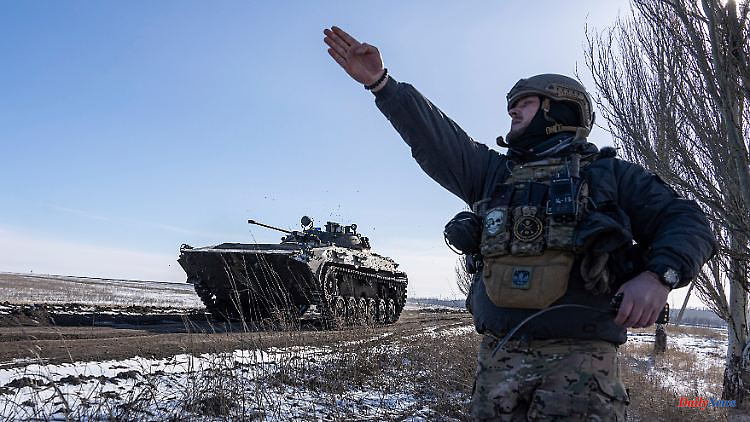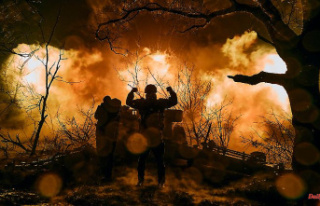After almost a year, the invasion in the east of the country has come to a standstill. An early negotiated solution is not in sight. Experts see Ukraine in a relatively good position. The darkest scenario of a nuclear strike could become more realistic in the Crimea issue.
The Kremlin had a lightning victory in mind when it attacked Ukraine almost exactly a year ago. Twelve months later there is a stalemate between Kiev and Moscow. Neither side is the military victor, and neither Moscow nor Kiev are willing to negotiate on the basis of the status quo. "There are no signs of an end anytime soon," says Jon Alterman of the US think tank Center for Strategic and International Studies. "Each side thinks that time is on their side and that it would be a mistake to agree now."
Observers fear that the war could become even more violent in the second year and expect a Russian offensive in the spring. However, Ukraine appears determined to retake lost territories, with increasing support from the West in arms. Kiev also wants to regain control of the Crimean peninsula, which Moscow annexed in 2014 - a plan that has met with skepticism in the West.
French President Emmanuel Macron recently assured Ukrainian President Volodymyr Zelenskyy in Paris that he was "determined to help Ukraine win". But that doesn't mean that the war has to end with a clear Russian defeat, said Liana Fix of the US think tank Council on Foreign Relations. "I think the most likely scenario is Ukrainian wins resulting in a sufficient win," she says. While Russia could mobilize large numbers of new soldiers, they would have to be trained, equipped and fed - tasks that the Russian army "has been really bad at so far in this war".
Dimitri Minic of the French think tank Ifri believes the type of weapons Ukraine receives from its western allies is crucial to the war. Longer-range artillery, for example, "could allow the Ukrainian army to break the attack-counterattack-defense cycle and win a decisive victory," he says. But he also points to the Kremlin's determination: "The Russians are ready to do anything to hold the occupied territories and continue their conquests, including unlimited mobilization and impoverishing their entire country if need be."
US expert Alterman could also "imagine a change in leadership in Russia that would end the war." Or some kind of truce. "But it's too early to tell," Alterman said. So far, neither side has signaled any real willingness to negotiate. Zelenskyy has presented a ten-point peace plan that would see Russia recognizing Ukraine's territorial integrity and withdrawing all Russian troops. According to Minic, Russia could temporarily accept Ukraine's independence and even a pro-European and pro-NATO leadership in Kiev, but only "in exchange for acknowledging Russia's conquests in Ukraine." However, experts agree that Ukraine will by no means be willing to do this.
She is also concerned with the question of whether Russia will use nuclear weapons as the war progresses. Moscow's initial threats of a nuclear strike turned out to be a "bluff," says political scientist Fix. However, if Ukraine manages to recapture Crimea, a nuclear scenario could become a "very serious possibility," Minic suspects. If that were to happen, internal conflicts in Russia could escalate for fear of a nuclear war. Any use of nuclear weapons would be taken as evidence of President Vladimir Putin's weakness, he says.
Election events could also have a major impact on how the war unfolds - most notably Ukraine's general election in October and the 2024 US presidential election. Washington's support is assured for this year, but Congress has approved a new aid program for the Ukraine is by no means guaranteed, says Fix. Some governments in Europe may also face political opposition to the war the longer it lasts. That's one of the reasons why "we must see some significant advances and victories by Ukraine in 2023," says the political scientist.












